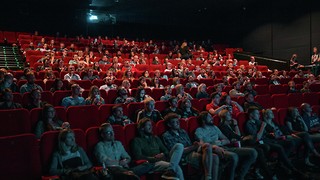Lance Armstrong and the Spectre of Doping in Sport
Toby Hayward-Butcher argues that the case of Lance Armstrong marks an anomaly in the age-old doping dilemma.
Despite the triumphant scenes that unfolded and continue to unfold at the Olympic and Paralympic games, one proverbial monkey that the IOC has been unable to shake off its back is the ever-present doping culture of many sports. As technologies for identifying drug cheats improves, so too do the techniques that some athletes use to avoid detection. For example, only recently have cyclists been required to provide ‘blood passports’, which help to detect what is known as blood-doping, whereby athletes take vials of blood at altitude, which contain a higher count of red blood cells, and inject this into their system to boost their performance during a stage-based event such as the Tour De France.
Only recently has 7-time Tour winner Lance Armstrong been accused of blood-doping. Armstrong has been hounded for much of the last decade not only by the American press, but also by fellow athletes in his sport, and by the United States Anti-Doping Agency (USADA), over allegations of doping that are believed to have helped him to win his many accolades. Armstrong recently gave up his lengthy legal battle, and on 24th August the USADA stripped him of all 7 of his Tour De France titles. New evidence is due to be presented later this week, which is believed to incriminate Armstrong, along with three doctors, a coach and his manager. But in spite of the spectre of doping on, not only cycling but all sports, it’s hard not to view this latest of many interventions as unnecessary.
To most people, Lance Armstrong is an inspirational figure of hope, courage and resilience. After surviving testicular cancer, which also spread to his lungs, brain and abdomen, he returned to cycling to win an unprecedented haul of titles. His story, regardless of the details, has been an example not only to athletes, but also to a wider society, of the power of positive thinking and strength in the face of adversity. His is a powerfully enduring symbol of optimism. To add to this, Lance Armstrong won his Tour De France-s during a time where an extraordinarily large number of cyclists were doping. In fact, in one year, if Armstrong were to be stripped of his title, it would retrospectively be awarded to the cyclist who finished in sixth place, so extensive was the doping crisis.
Given all this, would it not be better to make an exception, for common good and its vested interests in Lance Armstrong as a cyclist - but also as a brand, and for everything he symbolises - and conveniently ignore the drug charges? Given the farcical levels of doping among cyclists at the time, there is little that can now be achieved from this witch hunt. But instead of dropping these charges, the agencies involved have stepped up their assault with renewed vigour. Lance Armstrong is among the most tested athletes in the history of sport, and despite never having tested positive for a performance-enhancing substance, he has been doggedly pursued over the course of many years, right up to this supposed conclusion.
USADA have maintained for some time that, in order to maintain their strict zero-tolerance policy on doping, it is important to show that no one is exempt, not Armstrong, not anyone else, regardless of their fame, status, or personal story. In virtually any other context this would be an admirable approach. For as long as there has been competitive sport, there have been those who have attempted to flout the rules or beat the system, and it is right that they are banned, brought to justice, and deterred from such future behaviour. But this case is extraordinary, and the personal vendetta that people seem to have towards Armstrong is disproportionate to alleged offence – and at the time of writing they remain allegations, nothing more. If other cyclists of the time were pursued with the same doggedness as Armstrong, there is no telling how far the problem would stretch.
So once again the spectre of doping in sport has reared its ugly head, but when the apparent ‘truth’ about Lance Armstrong is released later this week, maybe this once it might do us no harm to conveniently ignore it, for pragmatic reasons if no other.
 News / Tompkins Table 2025: Trinity widens gap on Christ’s19 August 2025
News / Tompkins Table 2025: Trinity widens gap on Christ’s19 August 2025 Comment / A plague on your new-build houses18 August 2025
Comment / A plague on your new-build houses18 August 2025 News / Trinity sells O2 Arena lease for £90m12 August 2025
News / Trinity sells O2 Arena lease for £90m12 August 2025 News / Pro-Palestine activists spray-paint Barclays Eagle Labs18 August 2025
News / Pro-Palestine activists spray-paint Barclays Eagle Labs18 August 2025 News / Uni welcomes new students14 August 2025
News / Uni welcomes new students14 August 2025









